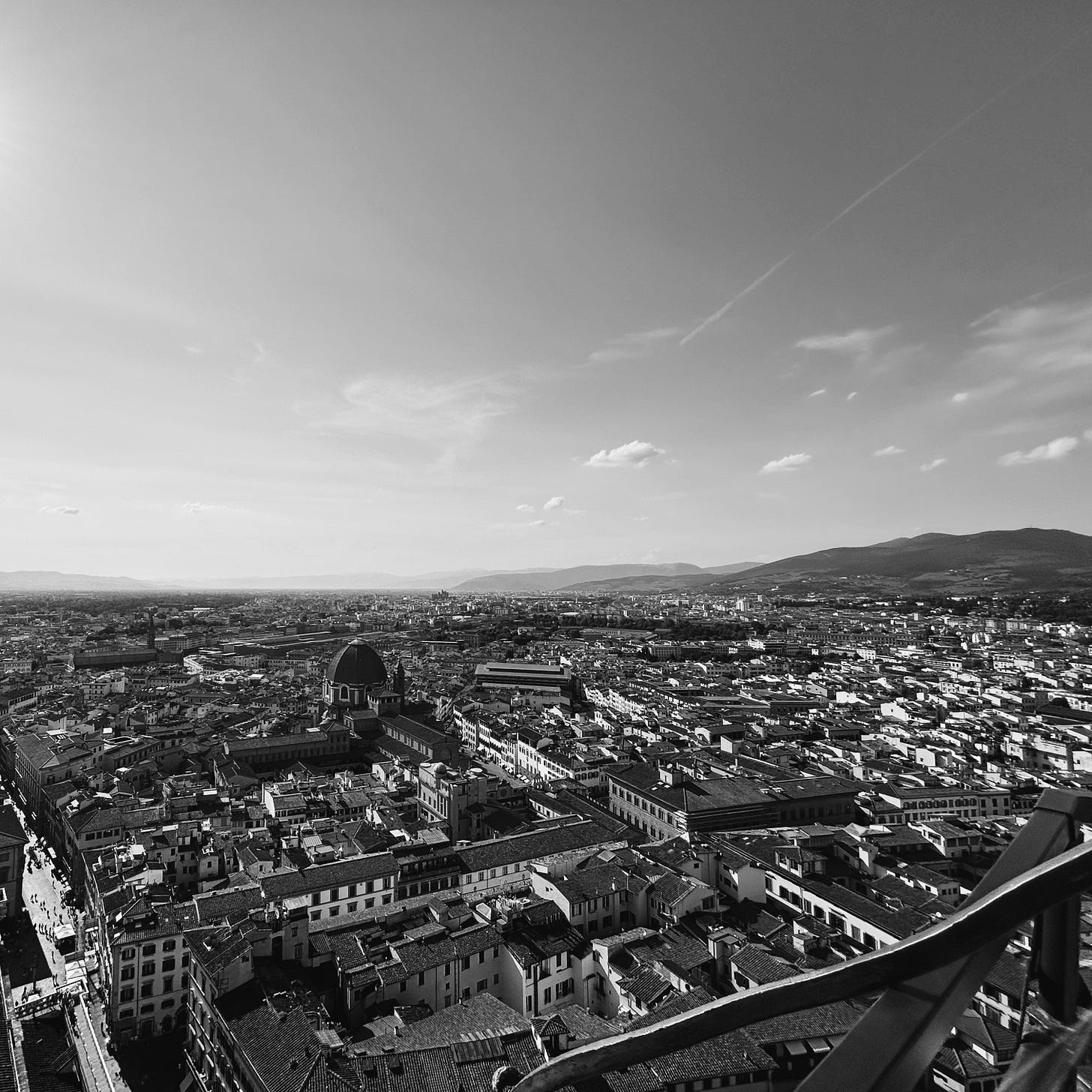Two weeks ago marked the end of my annual summer break. This year was uniquely special as a family event took Jenny, the kids, and I together across the pond to Europe. I eagerly and joyfully unplugged—no email, no social media, etc.—and lost myself in smallness.
It’s a profound gift and an immense privilege to explore unfamiliar streets in foreign places. For me, the experience is orienting in significant and necessary ways. Here’s what I mean.
Humans are driven in large part by our wants and longings. “I desire, therefore I am,” we might say. This is certainly true of me. Most days I wake up and am—knowingly or unknowingly, intentionally or unintentionally—guided by whatever it is I happen to desire that moment or that day or in that season of life. But our desires usually aren’t what we think they are. We like to believe ourselves to be autonomous, self-thinking, unique individuals but most of the time, we simply end up wanting the things that are modeled for us.
In his extensive work on desire, the philosopher Rene Girard called this “mediation”—the process by which our perceived wants and longings are influenced by the perceived wants and longings of others. Girard said that there are two specific types of mediation.
“External mediation” takes place when the mediator or model—the person whose desires we emulate—exists beyond our actual lived reality and exerts their influence by way of various platforms—Instagram, advertisements, etc.
“Internal mediation” then is when the mediator or model exists in proximity, as part of the reality of our everyday lives—coworkers who’ve moved up the ladder more quickly, the friend who always seems to be a step or two ahead, etc.
On most days, I have to effortfully and intentionally wrestle down both. My insecurity coupled with the lies of God’s enemy often distort everything at their disposal, from my feeds to my friendships, mostly whispering and occasionally shouting that I don’t measure up, don’t have enough, have not achieved enough, and never will. The mediators and models in my midst, due to no fault of their own, become albatrosses, robbing me of contentment.
But wandering the ancient streets of new and novel places detach me from myths of mediation and reattach me to the truth, that I am smaller and the world is bigger than I realize, and to live and move and have my being with the Creator God of it all is a gift.
The Apostle Paul wrote his letter to the Philippians while under house arrest in Rome. Prisoners are rarely content. But Paul is an exception. In Philippians 4:11, he writes, “I have learned to be content whatever the circumstances.”
Whatever the circumstances
This is a direct confrontation to the ethos of our day and age, where keeping up appearances is (almost) everything. In search of digital clout and more likes, retweets, and shares, we carefully, methodically, and effortfully manufacture particular narratives and personas online, to closely match those of our chosen mediators and models. But Paul has a completely different view.
I know what it is to be in need, and I know what it is to have plenty. I have learned the secret of being content in any and every situation, whether well fed or hungry, whether living in plenty or in want. I can do all this through him who gives me strength. - Philippians 4:12-13 NIV
Even in hunger and need, Paul discovered the secret to contentment—that God strengthens us, even in our weakness and in our lack, even when our real lives don’t look anything like the glossed up Instagram lives of others. This is why Paul, in his letter to the Corinthians, writes, “I will boast all the more gladly about my weaknesses, so that Christ’s power may rest on me. That is why, for Christ’s sake, I delight in weaknesses, in insults, in hardships, in persecutions, in difficulties. For when I am weak, then I am strong” (2 Corinthians 12:9-10 NIV).
Maybe you, like me, often feel the temptation to hide your weakness and lack behind the shallow, thin veneer of strength and success. May you remember that contentment in God’s kingdom is found in embracing our weakness, admitting our lack, and ultimately, delighting in the way they draw us closer to Christ, who is our source of true contentment. May you find yourself today, wherever your find yourself, wandering streets new and old, familiar and unfamiliar, with a sense of wonder, curiosity, and awe, and find yourself reattaching to the truth that you are smaller and the world is bigger than you realize, and that to live and move and have your being with the Creator God of it all is a gift. And in that, you can rest content.


